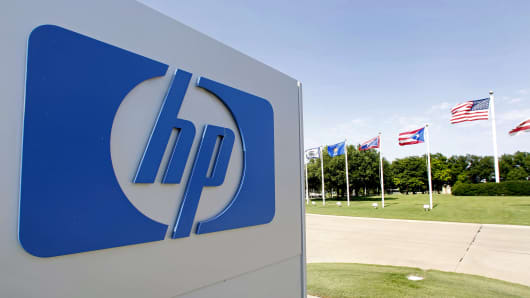But what about the future? Let's take a look at three of HP's main businesses as we think about whether they'll really rebound in fiscal 2014 the way management is projecting.
PCs
HP's main competitive advantage in the PC game is scale, but that's a tough card to play when PCs are in secular decline.
HP CFO Cathie Lesjak said the company faced tough price competition during the quarter as rivals unloaded their inventory of Windows 7 machines ahead of the Windows 8 launch.
Will things get better with the arrival of Windows 8? Maybe.
HP has some of the better-priced traditional PCs running the new OS. But HP will also face new low-priced competition in the form of tablets running Windows RT, and a new assault from Apple's iPad mini and low-cost Android devices. Sounds like things could very easily get worse for PC giants before they get any better.
Printing
The margins in printing have looked pretty good lately, but that's not a purely good sign.
Typically, HP sells printer hardware at thin margins and makes money on the ink later, and hardware sales have been way down.
HP's upside argument is that the real problem has been that it didn't have enough new multi-function printers on the market to spur both higher-margin hardware sales and ink purchases.
The open question, though, is which is stronger: the secular move toward the cloud and away from printing, or the short-term impact of refreshing the printer line?
Services
Company CEO Meg Whitman has lowered the bar for services more than any other division.
She said to expect revenue declines in the 11 to 13 percent range, and profit margins near zero for fiscal 2013. That turns around, she said, in fiscal 2014.
For HP to pull this off, it will have to battle a number of forces: customers like General Motors that are taking more I.T. work in-house; rivals like Oracle that are trying to sell engineered systems that combine hardware and software in a way that requires fewer service workers to run; and better-positioned services players like IBM aren't letting up.
email: tech@cnbc.com



